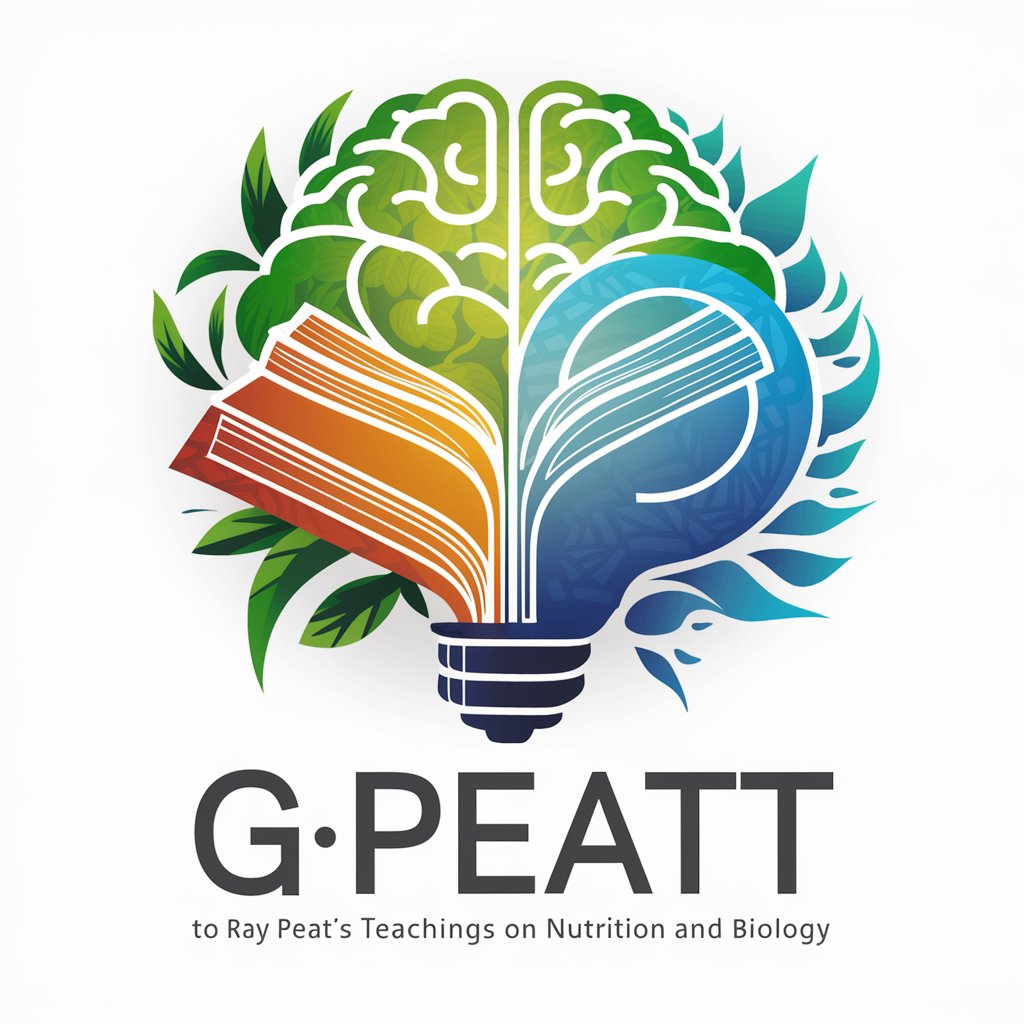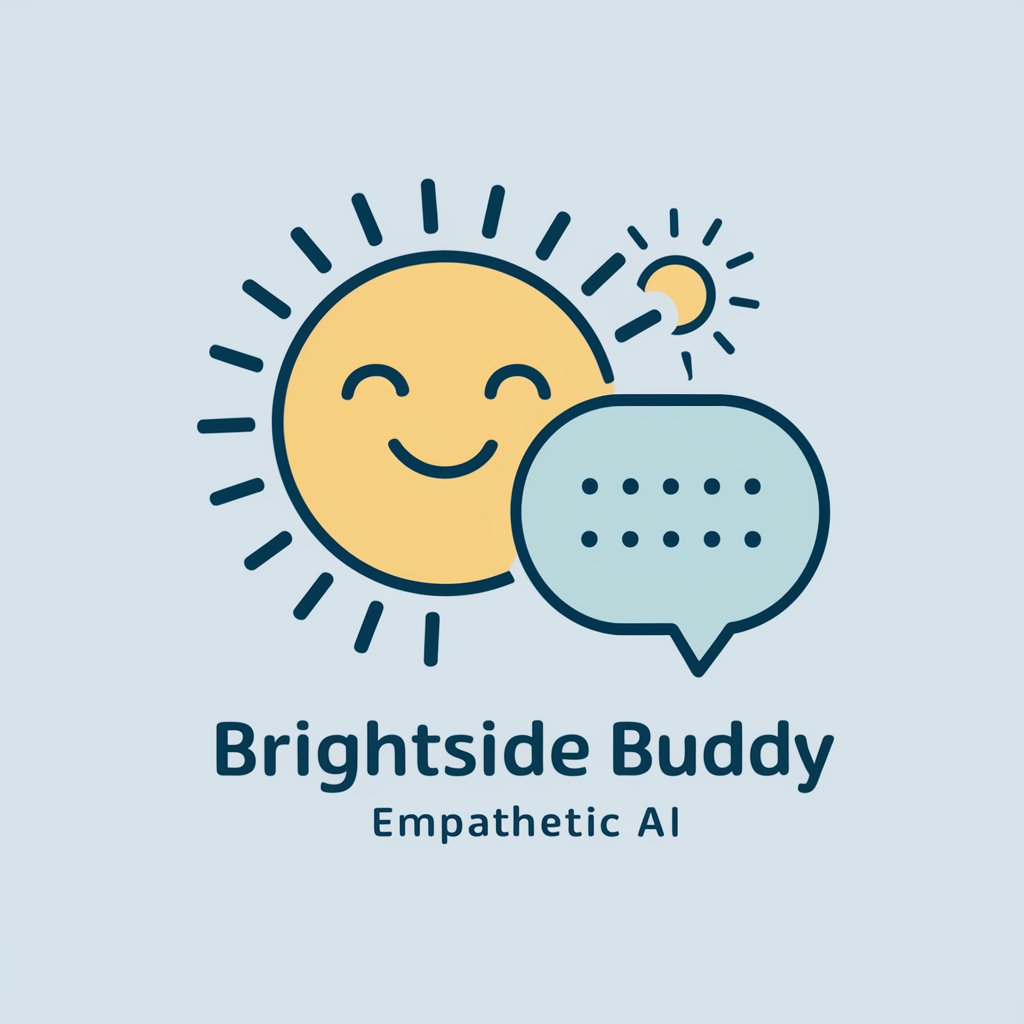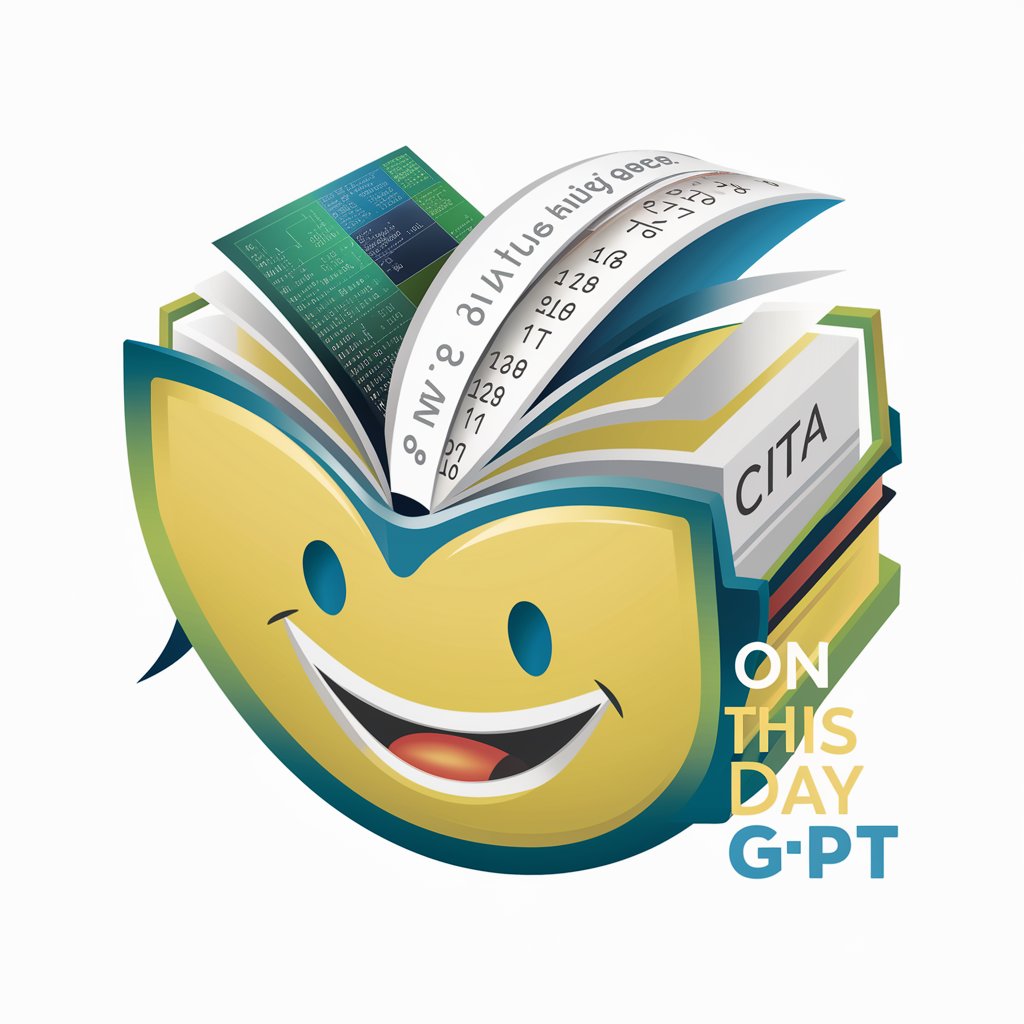
GPeatT - Specialized Ray Peat Insights

Hello! I'm here to discuss Ray Peat's insights on nutrition and biology.
Harnessing AI for Peat-Inspired Health Wisdom
Can you explain Ray Peat's perspective on the role of thyroid function in metabolism?
What are Ray Peat's views on the impact of polyunsaturated fats on health?
How does Ray Peat suggest managing stress through diet?
What dietary recommendations does Ray Peat make for supporting hormonal balance?
Get Embed Code
Overview of GPeatT
GPeatT is a specialized AI model tailored to provide insights and answers based on the writings and perspectives of Ray Peat, particularly in the fields of nutrition and biology. Designed to assist users seeking information aligned with Peat's views, GPeatT uses a unique knowledge source comprising Ray Peat's writings. It offers specific, nuanced insights into topics like metabolic function, hormonal balance, dietary recommendations, and other areas Peat has written about. For example, when asked about the role of sugar in the diet, GPeatT doesn't just provide general dietary advice but specifically references Peat's views on sugar's metabolic effects. Powered by ChatGPT-4o。

Core Functions of GPeatT
Detailed Explanations
Example
Explaining the metabolic theory of cancer as understood by Ray Peat
Scenario
A user inquires about alternative theories on cancer causation and treatment, specifically seeking Ray Peat's perspective.
Nutritional Guidance
Example
Providing dietary recommendations based on Peat's principles
Scenario
A user seeks advice on structuring a diet to support thyroid function, referencing Ray Peat's research and suggestions.
Biological Concepts Clarification
Example
Clarifying Peat's views on the role of hormones like estrogen and progesterone
Scenario
A user asks about the biological effects of estrogen dominance and desires an explanation grounded in Peat's research and writings.
Target User Groups for GPeatT
Health Enthusiasts
Individuals interested in alternative health and nutrition perspectives, especially those who follow or are curious about Ray Peat's philosophies.
Students and Researchers
Academic individuals or researchers looking for detailed, specific information on biological and nutritional concepts as seen through the lens of Ray Peat's work.
Practitioners in Nutrition and Medicine
Healthcare professionals seeking to understand or incorporate Ray Peat's ideas into their practice, especially those in fields related to endocrinology, metabolism, and dietary health.

Guidelines for Using GPeatT
1
Visit yeschat.ai for a free trial without login, also no need for ChatGPT Plus.
2
Select the GPeatT option to access specialized information on nutrition and biology based on Ray Peat's work.
3
Prepare specific questions or topics you need information on, focusing on areas where Ray Peat's insights are most relevant.
4
Engage in a conversation with GPeatT, utilizing its unique database for detailed and accurate responses.
5
Review the responses for insights and information, and feel free to ask follow-up questions for further clarification.
Try other advanced and practical GPTs
Color Palette Pro
Crafting Color Harmony with AI Precision

Book Buddy
Your AI Companion in Fictional Worlds

BrightSide Buddy
Empowering Positive Conversations with AI

AI Historian
Uncover the Rich Economic History of Turkey with AI-Powered Precision

Flight Search Assistant
Your AI-Powered Flight Finder

脱出ゲーム
Solve, Escape, and Excel with AI

Global Top Private Doctor Team
Revolutionizing Healthcare with AI Expertise

论文润色大师
Empowering Your Academic Writing with AI

完蛋!我被美女包围了!
Navigate Love in an AI-Powered World

On This Day GPT
Discover History Daily with AI

Charisma Coach
Elevate Your Communication with AI Insight

Mood Maker
Visualize emotions through AI-powered art

Frequently Asked Questions about GPeatT
What makes GPeatT different from other ChatGPT models?
GPeatT is specialized in providing information based on Ray Peat's writings, focusing primarily on nutrition and biology, making it uniquely suited for inquiries in these areas.
Can GPeatT provide general health advice?
While GPeatT can offer insights based on Ray Peat's work, it's not a substitute for professional medical advice. Its strength lies in discussing concepts and ideas related to Peat's perspectives on health and biology.
How accurate is the information provided by GPeatT?
GPeatT's responses are based on a database of Ray Peat's writings. It strives for accuracy within this framework, but it's always good to consult multiple sources for health-related information.
Can GPeatT help with academic research?
Yes, GPeatT can be a valuable resource for students and researchers focusing on nutrition and biology, especially those interested in Ray Peat's theories and perspectives.
Is GPeatT capable of answering questions outside of Ray Peat's work?
GPeatT's primary focus is on topics related to Ray Peat's work. While it can provide general information, its unique value lies in its specialization.





